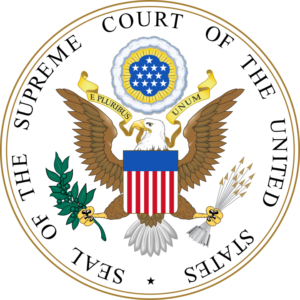Originally Published on forbes.com on March 19th, 2012
______________________________________
When the Supreme Court takes up the question of the “individual mandate” to buy health insurance under the Patient Protection and Affordable CareAct (“Obamacare“) it is important that we remember that they are not considering whether the mandate is a good idea. They will be considering whether Congress has the power under the Constitution to make the mandate. It is time for Constitutional purists. Activists and advocates tend to use the Constitution like a drunk uses a lamppost – more for support than illumination. You can see this in the marriage equality debates. Conservatives are all for states rights when states ban gay marriage – not so much when they permit it. Liberals really aren’t any better in that regard.
If Congress has the right to create the mandate it falls under its power to regulate interstate commerce. There are four cases that have been discussed in the various lower court decisions. They indicate that the interstate commerce power stretches pretty far, but that it does have some limit.
Stretching the Commerce Clause – Wheat and Weed
Wickard v. Filburn and Gonzales v. Raich are both about growing things for personal consumption. Wickard a 1942 case is about growing wheat and Gonzales a 1995 case is about growing marijuana. Given the fungibility of those items a regulatory scheme that allowed an exception for home baked bread or home baked brownies would break down. So the Supreme Court has ruled that Congress in order to effectively regulate the interstate commerce in carbohydrates and cannabis implicitly has the power to regulate plants whose fruits will not travel far before being baked into something or going up in smoke.
The Commerce Clause is Limited – Women and Weapons
United States v Lopez and United States v Morrison indicate that the Commerce Clause cannot be stretched to cover everything, US v Lopez was about the Gun-Free School Zone Act. To show you how much this is a constitutional purist matter, Justice Scalia does not seem to have mentioned the merits of a having a high school that is not gun-free. He and I both attended one that was anything but gun free. The arms room at Xavier High School in my day could have outfitted a World War II rifle platoon. Of course when Justice Scalia was there and dinosaurs roamed the earth those particular weapons might have been in the hands of actual soldiers in harm’s way. Nonetheless, in a recent speech to the Xavier High School Regiment he fondly reminisced about being on the high school rifle team and often carrying his weapon on the subway. None of that came up in the decision though. United State v Morrison held the Violence Against Women act unconstitutional. Both these cases were about the power of Congress under the Commerce Clause and both indicated that it could only be stretched so far. There was no discussion of the merits of third graders going about armed or the desirability of gender based violence.
Two Cheers for Constitutional Purists
The mandate under Obamacare addresses a real problem. If we are not going to make poverty and financial irresponsibility effectively punishable by death, the health care system is going to have a free rider problem. If the mandate is unconstitutional, there needs to be some other solution. Nonetheless, although not a purist myself, I admire them. The Eleventh Circuit decision explains the need for them quite eloquently:
The result may appear “formalistic” in a given case to partisans of the measure at issue, because such measures are typically the product of the era’s perceived necessity. But the Constitution protects us from our own best intentions: It divides power among sovereigns and among branches of government precisely so that we may resist the temptation to concentrate power in one location as an expedient solution to the crisis of the day.
You can follow me on twitter @peterreillycpa.































































































